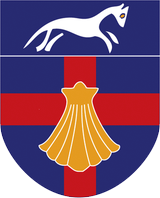Assessment
Assessment in Reception
From 2016, primary schools in England were asked to change how they measure pupil progress. A new method called the reception baseline assessment was introduced to measure children’s progress from when they first start primary school in reception, until the age of 11.
At Radley we are continuing to make assessment observations using the Early Years Foundation Stage profile to measure your child’s progress during their Reception year, but are also using the new baseline assessment. All assessments are made through a series of observations of your child, and do not take the form of formal testing.
The Primary Curriculum
The Primary Curriculum has been operational since September 2014, for children in Years 1, 3, 4 and 5, and September 2015 for children in Years 2 and 6.
Year 1 Curriculum (reading, writing and maths)Year 2 Curriculum (reading, writing and maths)Year 3 Curriculum (reading, writing and maths)Year 4 Curriculum (reading, writing and maths)Year 5 Curriculum (reading, writing and maths)Year 6 Curriculum (reading, writing and maths)How do we make assessments at Radley?
Children are assessed by their teachers in a range of ways to ensure children's learning moves on. Formative assessments are made daily, with teachers identifying how the children are getting on in their learning according to the days learning intention.
To further inform teachers' assessment of learning, the children will complete summative assessments in reading, writing and mathematics 3 times throughout the year. This enables the teachers to make judgements about how well the children have retained their learning and identify areas for further development or challenge.
For foundation subjects, teachers will be taking the end of year expectations for a year group and assess how children have progressed towards them. Assessment of progress will be split into the categories:
Emerging — Yet to be secure in end of year expectations.
Expected — Secure in the majority of end of year expectations.
Exceeding — Secure in all the end of year expectations and able to use and apply their knowledge and skills confidently.
A few children will be assessed as being beyond ‘exceeding’, and will be given the opportunity to add more depth and breadth to their knowledge and have more opportunities to develop their using and applying skills. This will be termed as ‘Mastery’.
Statutory Assessments
There are also a number of statutory assessments. In June of Year 1, all children will take the Phonics Screening Check.
It is designed to give teachers and parents information on how your child is progressing in phonics. It will help to identify whether your child needs additional support at this stage so that they do not fall behind in this vital early reading skill.
The Key Stage 1 Statutory Assessment Tests (SATs) officially assess each child’s maths and English abilities in Year 2. Although these are formal tests, they are done in a relaxed way during the month of May; in fact, most children are not even aware they’re taking a test!
In Year 4, the children sit the multiplication tables check in June. The purpose of the check is to determine whether your child can fluently recall their times tables up to 12, which is essential for future success in mathematics. It will also help your child’s school to identify if your child may need additional support.
The Key Stage 2 Statutory Assessment Tests (SATs) are more formal tests which measure attainment and progress over their time at primary school. The children sit these over the space of a week in May during Year 6.




